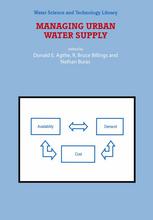

Most ebook files are in PDF format, so you can easily read them using various software such as Foxit Reader or directly on the Google Chrome browser.
Some ebook files are released by publishers in other formats such as .awz, .mobi, .epub, .fb2, etc. You may need to install specific software to read these formats on mobile/PC, such as Calibre.
Please read the tutorial at this link: https://ebookbell.com/faq
We offer FREE conversion to the popular formats you request; however, this may take some time. Therefore, right after payment, please email us, and we will try to provide the service as quickly as possible.
For some exceptional file formats or broken links (if any), please refrain from opening any disputes. Instead, email us first, and we will try to assist within a maximum of 6 hours.
EbookBell Team

4.1
10 reviewsWe, the editors, have long believed that a strong knowledge of relatively simple economic and engineering concepts is valuable in solving water management problems. The lack of such knowledge has been apparent to us in some of the journal articles, research proposals and books we have reviewed. The articles which have been written concerning specific local water economies and management issues are scattered over a wide variety of journals, making them hard to access. Most of the extensive water resources literature is concerned with large regional water projects or with narrow technical and regional issues. This book was written to make practical economic and engineering concepts readily available to urban water supply managers, thereby filling a gap in the available literature. It is concerned with decisions made daily, monthly, or annually by managers of urban water supply systems. The book includes basic chapters presenting supply and cost concepts, calculation of demand elasticities, use of marketing concepts, public goods analysis, water markets, industrial water demand and the use of price in water conservation. The authors have included multiple examples of how these concepts can aid in managing urban water supply. The water provider is generally a governmental entity or regulated private utility. Most books on public utilities and their management emphasize gas, electricity, or telephone rather than water. Water is different because of m~or variations in quality by source and the necessity for proper disposal of waste water.